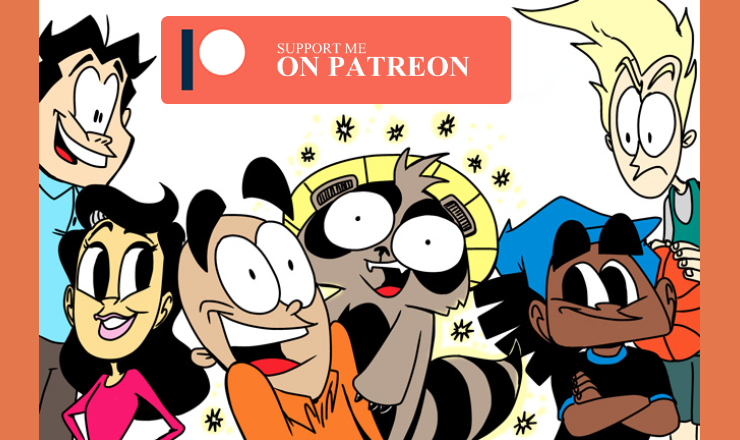This Quote From Seth Godin Could Change How You Think About Pursuing Your Passion
/Photo by Adrian Dascal on Unsplash
Do what you love, and the money will follow. Wasn’t that the name of a book?
It’s become an idea that fills creative people with hope, and more often than not, leaves us broke and disappointed.
Doing what you love doesn’t always lead to success and financial freedom. It can. I know there are people out there who have done it, but it’s rare. Taking something you enjoyed as a kid, a hobby you love, or a creative skill like writing or drawing and turning it into a successful career is a considerable risk.
One most people fail.
Was that too dramatic? My apologies. It’s because I’m a creative person who’s learned this the hard way. I’ve been working towards making a full-time living from cartooning and writing for many years. Fortunately, I’ve been able to make it work with the help of teaching art and multiple day jobs.
But I’m still doing everything I can to make a bit of part-time income from creative work.
The hard part for me was accepting that every passion isn’t made for success. At least, what you’re putting out into the world might not become something big exactly when you want or need it to.
Not only because it’s challenging to make money with, but because it might not get the attention of a broad audience right away. If you’re a writer, maybe your voice or ideas aren’t resonating on a large scale yet.
Unless you think of “Following your passion” differently.
Having a passion for something isn’t enough. In fact, your love for it might be holding you back. There could be new pursuits you could try and ultimately fall in love with that you’re not because of being dead set on something fun but not working for you.
That’s why this quote from
Seth Godin’s new book “The Practice: Shipping Creative Work” made me stop and take note.
“Do what you love” is for amateurs. “Love what you do” is the mantra for professionals.
-Seth Godin
You can learn to love new jobs and skills when you practice Seth’s advice and use it as your mindset. Sometimes it comes down to just loving the work you do — even if it’s not your favorite, dreamiest, best of the best work you’ve ever done in your life.
Discovering what I want and learning how to think less like an amateur and more like a professional has taken time.
Here are a few ideas that helped:
Doing what you love for fun, not money
When it comes to the hobbies and activities you engage in for fun, doing what you love is excellent advice. As long as you don’t expect to make money.
If you end up striking it rich from your hobbies, awesome! Good for you. Either way, enjoying the process of doing or creating should be the end goal. It shouldn’t be something you hope will bring you millions of dollars.
Playing video games is a lot of fun. Some may even feel like it’s their passion. Enjoy playing and use it as your escape. Sure, you could record yourself playing and post it up on YouTube so others could watch, and that might become a hit for you. You could become a video game tester or designer.
If you do, though, how your hobby feels might change. For example, do you want it to feel like work?
I’ve learned that some things should remain hobbies. Having an outlet, you love to dive into when you need something to make you smile.
Make learning valuable skills fun
Convincing yourself that it’s valuable to fall in love with skill-building will help you move forward in anything you pursue. If you enjoy learning to write and communicate better, improve your public speaking and event organization skills, they’ll cross over into any work or job you have.
Learning several skills at the same time could be overwhelming so narrowing them down to one works well. Once you’ve become pretty good at that one, move on to the next. Make that feeling of mastering a skill something you’re passionate about.
If you’re developing skills in very different areas, like music, then writing, and video editing, it might help to combine them, so you don’t get scattered. For example, I like putting my interests under an umbrella term like “Storytelling” to combine my love of writing, drawing, and teaching.
When I learn a new way to illustrate comic pages, it fits with my goal of improving as a visual storyteller. Of course, this may be different from improving as an article writer. Still, I know improving my writing skills will help me make more relatable comics.
Learning can be fun, but you won’t know if you’re growing if you don’t put it out there for an audience.
Sharing your passions with the world
Sharing your work with the world is how you make a name for yourself and refine your skills. Do you want to reach a professional level? Write online, post your performances on YouTube, and air your podcast so that others can be inspired and entertained — not only for exposure but for feedback.
You’ll get a chance to see which pieces of content people respond to and learn more about what they want. Hearing feedback can be challenging, especially if most of it is harmful when you first start out, but take it and make adjustments. If it hurts, ask yourself why, and stay open to making changes.
You can practice the skill by doing it as a side-hustle while you work your day job if it’s something you decide to earn money from in the long run. If money is a goal, make sure to post as often as you can every week to attract fans and stay consistent.
Conclusion
If you produce your work online and even post it to friends who share your interests, you’ll watch your passion for it bloom.
So why not try an experiment?
Decide on a skill you’d like to improve on and take an online course or practice regularly at a scheduled time each week. Maybe it’s something you want but doesn’t quite feel like it’s your “passion” just yet.
I bet, after a few months, you’ll improve and start feeling passionate about it in a way that might surprise you.
It all comes down to learning to love what you do. After that, picking what you do is up to you.





